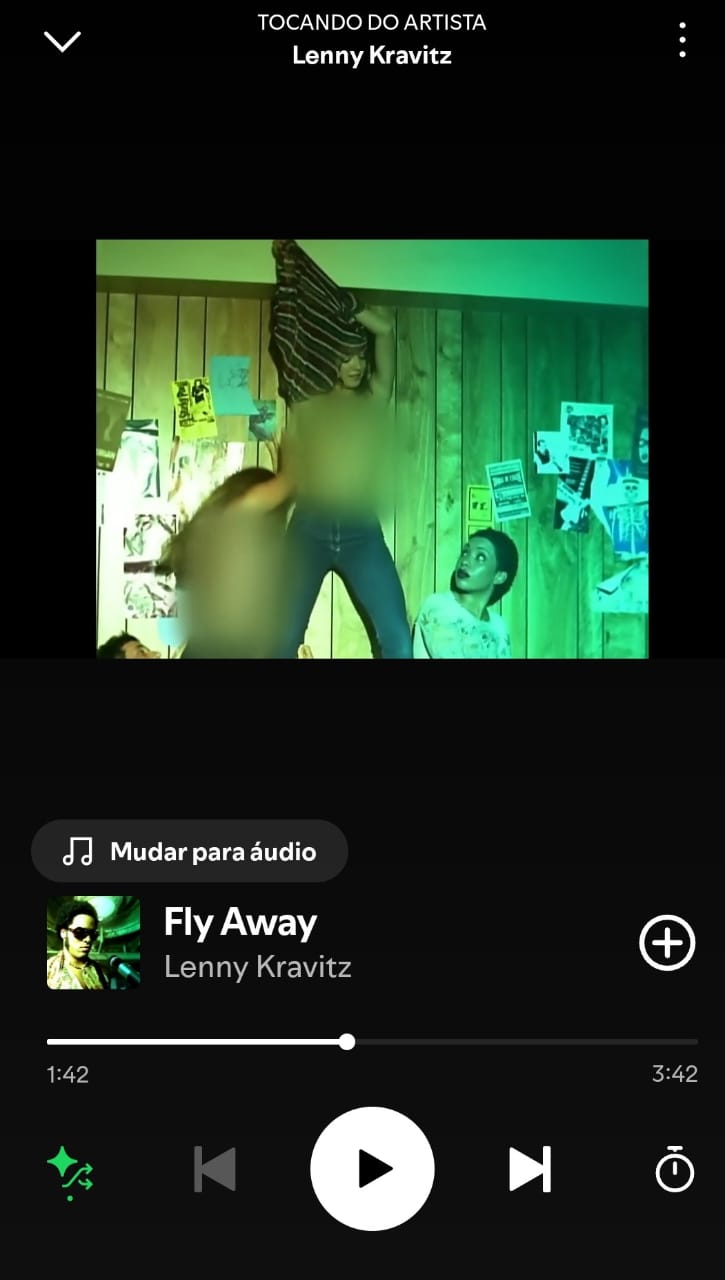Another song that got into this blog because of the The Voice season finale last Sunday — because Renzo sang it — is Fly Away by Lenny Kravitz, the electrifying rock-funk single that once again captivated audiences with its timeless groove and high-energy vibes.
Originally released in 1998 as part of Kravitz’s fifth studio album 5, Fly Away became one of his biggest hits, soaring to No. 12 on the Billboard Hot 100 and topping the UK Singles Chart. The song earned Lenny a Grammy Award for Best Male Rock Vocal Performance in 1999 — his first of four consecutive wins in that category.
The track was written, produced, and performed entirely by Lenny Kravitz, who played most of the instruments himself — showcasing his signature blend of rock, soul, funk, and retro influences. Interestingly, Fly Away wasn’t originally meant to be on the album 5, but Kravitz added it last-minute after testing it in a car stereo and realizing its potential to become a hit.
2. History of the Song and the Artist
By the time Fly Away was released, Lenny Kravitz had already established himself as a powerhouse in the world of rock. Born in New York City and raised between Manhattan and Los Angeles, Kravitz’s music career took off in the late ‘80s and early ‘90s with a retro yet modern sound, influenced by icons like Jimi Hendrix, Prince, and The Beatles.
His album 5 marked a creative turning point, blending analog instrumentation with digital production — a nod to his willingness to evolve without losing his vintage soul. Fly Away was reportedly inspired by Kravitz’s love for travel and freedom, which he channeled into a driving, riff-heavy track that felt like a sonic escape.
The song became a defining hit not only for its infectious chorus and vibrant guitar work but also for how it elevated Kravitz into mainstream rock stardom globally. Its legacy lives on, frequently used in commercials, movie soundtracks, and now, in Renzo’s unforgettable performance on The Voice.
3. On the Videoclip: Raw Rock Energy in Visual Form
The Fly Away music video perfectly captures the raw, energetic essence of the song. Directed by Paul Hunter, who’s known for iconic videos with artists like D’Angelo, Christina Aguilera, and Eminem, the clip strips things down to a performance-centric visual.
Shot in grainy, high-contrast black and white, the video showcases Kravitz and his band rocking out in a gritty club-like setting. There are no elaborate narratives or effects — just sweaty, raw rock and roll. The simplicity is what makes it memorable, amplifying the track’s energy without distraction.
Though the video doesn’t include choreographed dancers or scripted scenes, the crowd’s movements and the kinetic camera work serve as an organic “choreography” that mirrors the song’s rebellious pulse. This visual direction helped reinforce Kravitz’s image as a no-frills, pure-music artist at the top of his game.
4. Talk Nerdy to Me: Musical Theory Behind “Fly Away”
From a music theory perspective, Fly Away is driven by a gritty blues-inspired riff built on the E minor pentatonic scale, a staple in rock music for its expressive, vocal-like tone. The main riff repeats through the verse and chorus, creating a hypnotic effect that anchors the entire song.
The tempo sits at around 104 BPM, giving the track its laid-back, head-nodding groove. Structurally, the song follows a straightforward verse-chorus-verse-chorus-bridge-chorus format, with minimal harmonic variation — it thrives on texture and dynamics rather than complexity.
One of the standout features is Kravitz’s use of vocal layering and distortion. The production combines analog instruments (especially his signature Gibson Flying V guitar) with tight compression and digital effects, which was innovative at the time and contributed to the track’s modern punch.
5. More from the Artist: Beyond “Fly Away”
Lenny Kravitz has an extensive and diverse musical catalog that spans more than three decades. If Fly Away caught your attention, here are a few other must-listen tracks and appearances:
- Are You Gonna Go My Way – A blazing rock anthem with one of the most iconic guitar riffs of the ’90s.
- It Ain’t Over ‘Til It’s Over – A smooth, soulful track with Motown influences.
- American Woman – A fiery cover of the classic by The Guess Who, featured on the Austin Powers: The Spy Who Shagged Me soundtrack.
- Raise Vibration (YouTube Sessions) – A stripped-down, live session showcasing Kravitz’s vocal power and musical depth.
In addition to his music, Kravitz has made a name for himself as a fashion icon, actor (The Hunger Games), and activist, blending art with impact in every aspect of his career.





